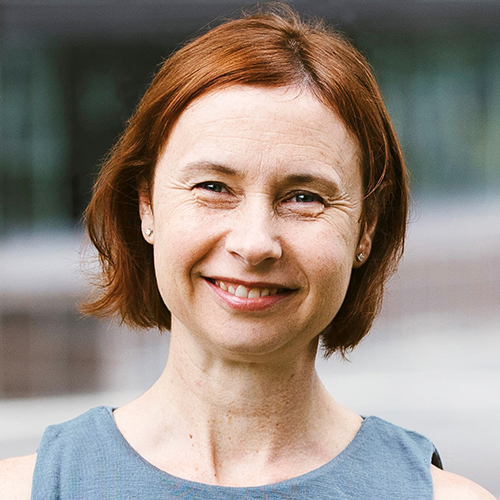 IBCLC Detailed Content Outline: Development and Nutrition Focused CERPs - Section I
IBCLC Detailed Content Outline: Development and Nutrition Focused CERPs - Section I
Access CERPs on Development and Nutrition for the IBCLC Detailed Content Outline recertification requirements. Enjoy convenient on-demand viewing of the latest Development and Nutrition focused IBCLC CERPs at your own pace.
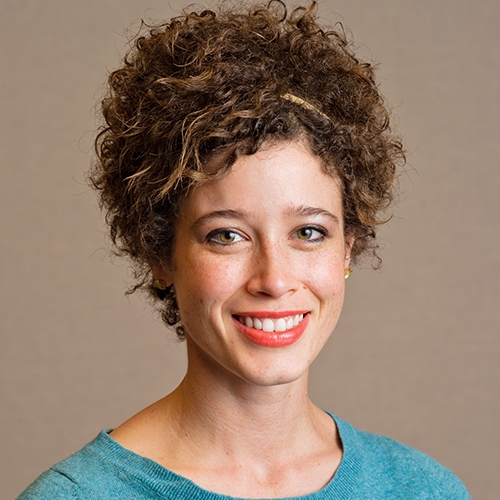
Supportive Breastfeeding Practices for Infants With Swallowing Challenges in the NICU

Chesney Willis, MHS, CCC-SLP, IBCLC is a certified speech language pathologist and lactation consultant from the University of Missouri Women’s and Children’s hospital. She earned her master of health sciences degree from the University of Missouri in 2008 and obtained her IBCLC in 2017. Chesney has over 13 years of experience working across outpatient rehabilitation, home-health, inpatient care for pediatrics and neonates in level II and III NICU settings. Clinical expertise includes evaluation and treatment of disordered swallowing and feeding in special neonate populations. Experience includes the development and dissemination of education for best feeding practices for late preterm and preterm infants to families and inter-disciplinary health care providers. She is passionate about supporting mother-baby breastfeeding dyads with special feeding considerations from hospitalization through the transition to home.
In this session, learners will explore the transition from gavage to breastfeeding in the NICU from the perspective of a premature infant. Babies born prematurely or with special needs typically develop safe feeding and swallowing at a slower rate. Early coordination of the swallow may be appreciated between 32 and 34 weeks gestation, with variability depending on degree of prematurity and underlying health conditions. Early breastfeeding success depends on identifying stress cues during feeding, teaching modifications, and keeping a flexible, developmentally sensitive care plan. Participants will learn to recognize bedside clinical signs of aspiration with special discussion of cough maturation and its long-term clinical implications.
Providers will be encouraged to support families from early antepartum with imminent preterm delivery, postpartum during the “golden hour” for an exclusively pumping mom, and introduction to Mother’s milk with early swallowing at bedside in the NICU. Working closely with lactation and therapy services ensures appropriate education and successful developmental expectations for the individualized NICU infant. Lastly, as families prepare for home, the importance of an inter-disciplinary team approach with appropriate discharge recommendations and community supports will be highlighted.


Rolinde obtained a PhD in applied biological sciences at Ghent University in 2011 and authored several peer reviewed articles. After a career as a scientist, she started her private practice “Op de groei”, where she works as a pediatric dietitian and lactation consultant. Rolinde has a special interest in allergies, starting solids and picky eating and is the author of several books on cow’s milk allergy and feeding in the first years of life. Rolinde is known for the critical eye with which she translates science into practical information.
Cow’s milk protein allergy is one of the most common food allergies in young children, diagnosed in 1/200 breastfed infants. Both underdiagnosis and overdiagnosis can have negative implications for mother and child, underlining the importance of a timely and correct diagnosis. An adequate management of a cow’s milk protein allergy should not only focus on the correct elimination of cow’s milk proteins, but also on practical advice on adaption of family meals and nutritional adequacy for the breastfeeding mother and infant. Research shows that 85% of children develop tolerance to cow’s milk proteins, on average between the age of one and three years old. This presentation will include when and how reintroduction with cow’s milk should occur to determine acquisition of tolerance in the breastfed infant. Finally, we will discuss whether the development of a cow’s milk protein allergy can be prevented and which factors raise the risk of developing a cow’s milk protein allergy.
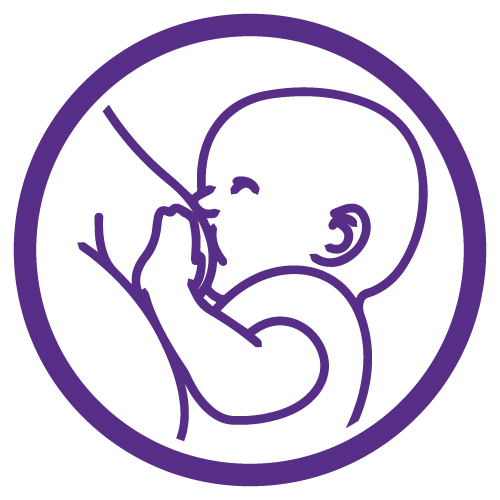
View Details / Enroll
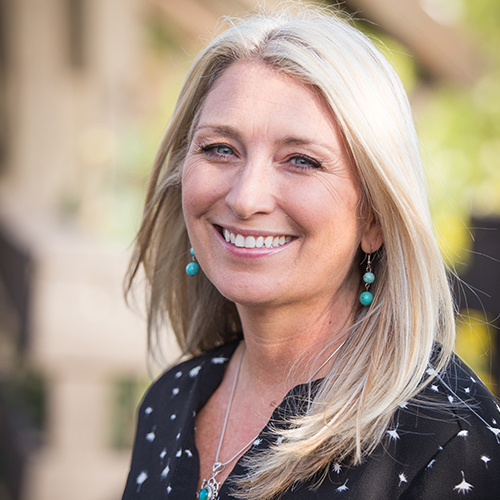
Talk To Me: How Breastmilk Acts as a Communication and Gene Expression Tool Between Mother and Child

Laurel Wilson, IBCLC, CLE, CCCE, CLD is a TEDx and international speaker, author, pregnancy and lactation expert, and consultant. She served as the Executive Director of Lactation Programs for CAPPA, the Childbirth and Postpartum Professional Association for 16 years and now is on the Senior Advisor Board. She served on the Board of Directors for the United States Breastfeeding Committee from 2016-2019. She also is on the Advisory Board for InJoy Health. She owns MotherJourney, focusing on training perinatal professionals on integrative and holistic information regarding pregnancy, childbirth, and breastfeeding. She has her degree in Maternal Child Health: Lactation Consulting and is an internationally board certified lactation consultant. As the co-author of two books, The Attachment Pregnancy and The Greatest Pregnancy Ever, original Editor of the CAPPA Lactation Educator Manual, and contributing author to Round the Circle: Doulas Talk About Themselves, she loves to blend today’s recent scientific findings with the mind/body/spirit wisdom. Laurel has been joyfully married to her husband for nearly three decades and has two wonderful grown sons, whose difficult births led her on a path towards helping emerging families create positive experiences. She believes that the journey into parenthood is a life-changing rite of passage that should be deeply honored and celebrated.
Topic: Epigenetics and Breastfeeding: The Potential Longterm Impact of Breastmilk - [View Abstract]
Topic: Hold the Phone! Diet Does Matter During Breastfeeding: Implication of Diet on Fatty Acid Composition and Other Nutrients - [View Abstract]
Topic: Postpartum Mood Disorders, Breastfeeding and the Epigenetic Links from Past Into Future - [View Abstract]
Topic: Talk To Me: How Breastmilk Acts as a Communication and Gene Expression Tool Between Mother and Child - [View Abstract]
Topic: The Milk Sharing Conundrum - The Grey Area Between Scope and Need - [View Abstract]
Topic: The Placenta and Breastmilk-Unraveling the Mysterious World of the Intelligent Organs that Protect our Babies - [View Abstract]
Topic: Understanding Zika and Lyme and Breastfeeding - [View Abstract]
Topic: Unraveling the Mysteries of Human Milk: The Fascinating Role of Neohormones, Epigenetics, the Microbiome and More! - [View Abstract]
Breastmilk has long been understood to be a pathway towards long-term health for both mother and child. The specific mechanisms for how this communication works has long been studied and today many researchers believe that messenger RNAs and stem cells contribute in many ways to appropriate developmental pathways for the baby and cause gene activation that promotes health for life. mRNA in breastmilk can also be influenced by the time of day and even the timing of the babies delivery, becoming adaptive for the baby’s unique needs. Not only do these messenger RNA communicate important genetic information to the baby via breastmilk, changes in the mothers body via mRNA occur during lactation responding to a new “mothering” focus during the period of lactation. This may impact the mother’s postpartum mental states, adaptation to stress, and changes in fatty acids. This presentation highlights some of the fascinating studies that demonstrate the myriad of ways that stem cells and mRNA during lactation become the ultimate communicators, affecting change for years to come.

View Details / Enroll


Autumn R. Henning, MS, CCC-SLP, is a certified and licensed Speech-Language Pathologist with Certificate of Clinical Competence from the American Speech-Language Hearing Association (ASHA). She graduated Magna Cum Laude from the University of Kentucky with her Bachelor’s and Master’s Degrees in Communication Disorders. Autumn is a recognized provider by Ankyloglossia Bodyworkers, has been a guest presenter for Creating a Care Plan for Tongue Ties and delivered a webinar through Innara Health entitled Tethered Oral Tissues: What’s a Therapist to do?. She has served on local breastfeeding professional panels and delivered numerous presentations to parents and medical professionals. Autumn has completed specialty continuing education including Beckman Oral Motor, Vital Stim, and Foundations in Myofascial Release for Neck, Voice, and Swallowing as well more than a dozen professional courses on pediatric feeding and related topics. She is pursuing further education in the areas of lactation and orofacial myology. Autumn has experience working in the school system, early intervention, an ABA center and outpatient clinics including a nationally award-winning intensive feeding program. Autumn currently specializes in pediatric feeding at a non-profit outpatient clinic in Greenville, SC and serves on the board. She recently founded a continuing education company, Chrysalis Feeding, LLC. The flagship course is TOTS: Tethered Oral Tissues Specialty Training that launched this Fall.
This presentation is an introduction to tethered oral tissues and their impact on oral function beyond breastfeeding. Participants will learn about the oral skills necessary for proper speech and solid feeding and how tethered oral tissues alter this optimal function. Participants will learn how to effectively communicate with patients, families, and other medical professionals on this topic and make appropriate referrals with recognition of signs and symptoms affecting oral function.
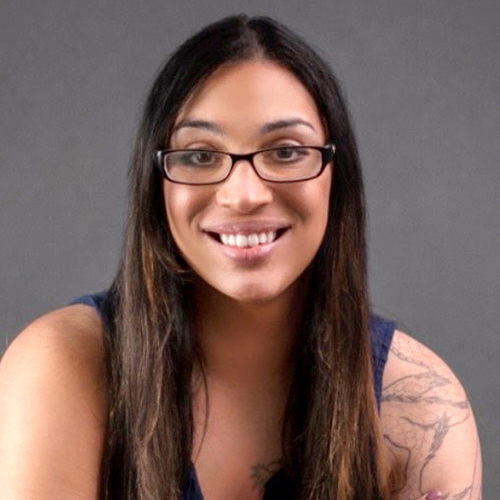

Shondra Mattos is an IBCLC, Entrepreneur & Speaker who delivers progressive, up-to-date lectures that challenge the current standard of Lactation Care. She is widely regarded as the go-to source for those looking for clear, understandable clinical knowledge.
In 2018, Shondra rebranded her lactation practice Mattos Lactation and provided location-independent lactation support to families across the country. In 2020 she founded Lactnerd LLC with the focus of helping healthcare providers gain knowledge while conquering the intimidation of learning the complex science of Lactation.
Through her companies- Lactnerd & Mattos Lactation - she provides tools, resources, education & mentoring to aspiring and established lactation professionals across the USA.
This presentation will cover skills & strategies of conducting assessments of oral dysfunction in a telehealth setting, a situation many Lactation providers were thrusted into due to Covid-19. Through real life examples of processes & strategies I use in my location-independent practice which specializes in oral dysfunction, the learner will gain practical insight to improve the quality of the virtual lactation visits they provide.
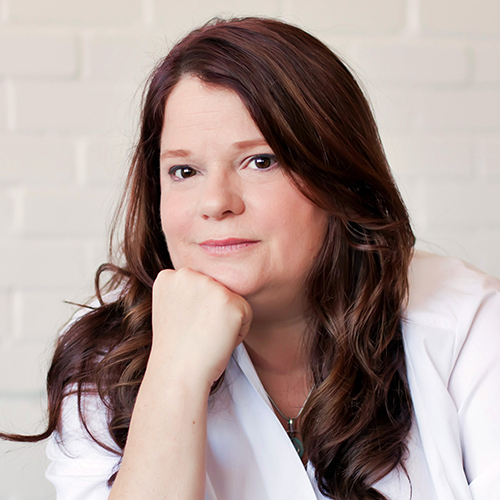

Barbara D. Robertson, IBCLC, has been involved in education for over 34 years. She received a Bachelor’s degree in Elementary Education in 1988 and her Master’s in Education in 1995. Barbara left teaching elementary students in 1995 to raise her two children. Barbara is now the Director of The Breastfeeding Center of Ann Arbor and of the brand new business LactaLearning.
The Breastfeeding Center of Ann Arbor will still continue to serve breast/chestfeeding families and now LactaLearning will be dedicated to all of Barbara’s professional lactation trainings. Barbara has developed two 95 hour professional lactation training, a group training and a completely self study training with Nancy Mohrbacher. Barbara’s idea of creating professional book groups has exploded with her hosting Making More Milk with Lisa Marasco, Supporting Sucking Skills with Cathy Watson Genna, Breastfeeding Answers, 2nd Edition with Nancy Mohrbacher, and new for the fall, Safe Infant Sleep with Dr. James McKenna. Barbara will be hosting a one day online conference in the fall with Lisa Marasco and Cathy Watson Genna using all of her tech savvy skills to make this a one of a kind experience. Barbara is also a speaker for hire on a wide variety of topics including Motivational Interviewing. Barbara volunteered for the United States Lactation Consultation Association as the Director of Professional Development for 4.5 years.
She just retired as Associate Editor for Clinical Lactation, a journal she helped create for USLCA. Barbara has free podcasts, a blog, and Youtube videos which can all be found on her websites lactalearning.com and bfcaa.com. She has written many articles as well. She loves working with parents and babies, helping them with breast/chestfeeding problems in whatever way she can.
Topic: Breastfeeding: Baby’s First Milestone - [View Abstract]
Topic: Clinical Assessment and Management of Low Milk Production - [View Abstract]
Topic: Deconstructing Online Messaging: Ethical Considerations - [View Abstract]
Topic: Milk Sharing and Milk Banking: Building Knowledge for Better Outcomes - [View Abstract]
Topic: The Baby's Not Gaining Weight! Now What? - [View Abstract]
Topic: The Great Nipple Shield Debate - [View Abstract]
Helping families determine if an infant is gaining weight appropriately in the first months after birth is an important part of a lactation consultants work. Being able to assess for the signs of a healthy, well-fed infant is critical to this work. If an infant is not gaining appropriately, calculating how much extra food the infant needs to grow properly, what this infant will be fed, identifying why this is happening, and providing possible solutions allows families to work on preserving breastfeeding while improving the breastfeeding relationship.

View Details / Enroll
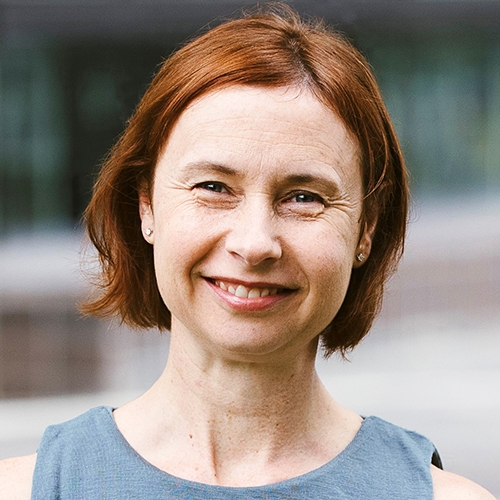

Wendy is a breast biologist at the University of Adelaide, Australia. Her research explores the biology of how the breast develops and functions to better understand how disease states occur, including lactation mastitis and breast cancer.
After postdoctoral research as an NHMRC CJ Martin Fellow at Albert Einstein College of Medicine in New York, USA, Wendy returned to Adelaide in 2005 and established the Breast Biology and Cancer Unit at the University of Adelaide. In 2011 she was appointed a National Breast Cancer Foundation Fellow and also The Hospital Research Foundation Associate Professor of Breast Cancer Research, which is her current appointment.
In 2016 Wendy won the Award for Excellence in Reproductive Biology Research from the Society for Reproductive Biology. Wendy’s research challenges old paradigms and explores new concepts in how the breast develops and functions to improve breast health across the life course.
The mammary gland is a unique tissue, common to all mammals, that undergoes the majority of development postnatally, particularly during puberty and pregnancy. During pregnancy, the mammary gland acquires the ability to make and secrete copious amounts of milk to provide essential nutrients and immunological protection to the newborn. The biological mechanisms that lead to milk synthesis and secretion are finely orchestrated as the composition, abundance and timing must meet the unique and specific needs of each mother-baby pair during this critical phase of infant development. This lecture will encompass the developmental mechanisms that enable the mammary gland to undergo lactation, the composition and secretion of breast milk, and a comparative analysis of the mammary gland between human and other mammalian species to better appreciate the remarkable functions of this unique tissue.

View Details / Enroll
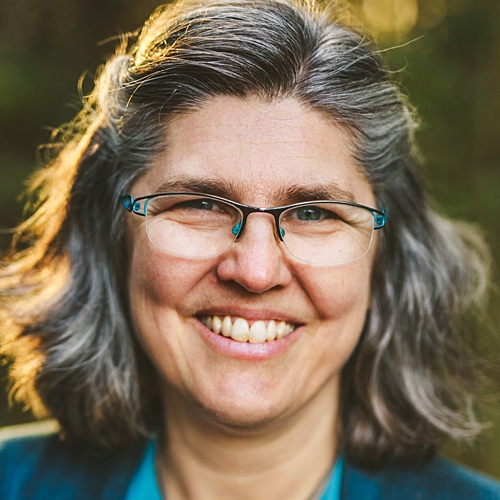
The Compensatory Mechanics of Suck for Babies with Oral Tethering: How to Identify and Treat after Revision

Ellen Chetwynd PhD MPH RN BSN IBCLC is a breastfeeding researcher, lactation consultant, and advocate. Her goal is to provide excellent care that is innovative and effective. Her clinical care is equally informed by, and leads to, her research and collaborations with fellow scientists. She is an advocate of breastfeeding families of all shapes, as well as the providers who care for them. Through her work as Chair of the North Carolina Breastfeeding Coalition she has contributed to the statewide work to provide Medicaid reimbursement in North Carolina, successfully funded a project to support clinics seeking to become breastfeeding friendly and increase access to equitable support of breastfeeding, implemented a statewide breastfeeding summit, and created an interactive statewide resource listing for breastfeeding resources at the county level. In her lactation consulting work, she is sought out by parents and clinicians for her work with difficult cases of pain and dysfunctional infant suck. She is a prolific writer, and her research and publications cover topics including breastfeeding and metabolic health, reimbursement for lactation consulting, LGBTQI+ families, and breastfeeding research methodology. She recently created and co-taught a full day workshop on breastfeeding research methods, and gets fired up about the numbers behind what we do to support families. At Next Level Lactation LLC, she and her partners provide advanced lactation educational opportunities.
Babies with oral tethering don't have access to the full range of motion needed to create negative pressure at the back of their mouths so they can draw milk out of the effectively and painlessly. We can all assess the latch, but what is happening with the tongue, the breast and nipple, and the other muscles involved in the mechanics of suck after the baby’s mouth closes over the breast? How do we identify compensatory mechanisms convince babies to change them with the broader mobility they have after frenotomy? This presentation will teach participants how to visualize/experience normal infant suck. Compensatory suck mechanisms are the techniques that infants use during feeding when they don’t have access to adequate movement in their tongue and floor of their mouth. Infants are creative, and the strategies they develop are varied. Participants will learn how to identify and categorize compensatory mechanisms and use clinical skills to differentiate and assess muscle tension related to overuse and suck mechanics at the breast. A unique set of clinical techniques that can be used by the lactation consultant and taught to the mother addressing each category of compensatory suck mechanics will be introduced and illustrated through case studies.
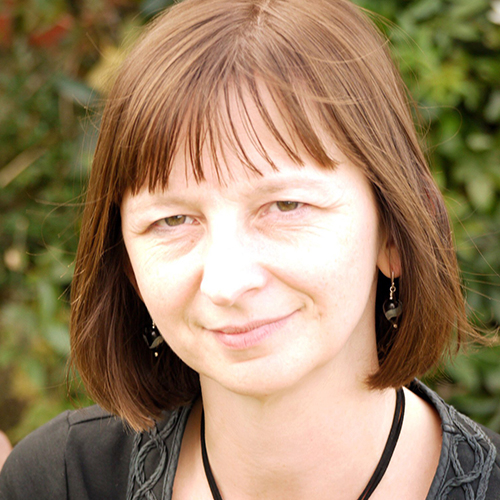
The Elephant In The Room - Bleeding Post Tongue-Tie Division

Sarah is a Registered General Nurse, Health Visitor, International Board Certified Lactation Consultant and Tongue-tie Practitioner with a busy private practice based in Cambridgeshire, UK. Sarah is a founder member and former Chair of The Association of Tongue-tie Practitioners and has written a book for parents and professionals, ‘Why Tongue-tie Matters’. Sarah lectures nationally and internationally on infant feeding and tongue-tie.
Topic: COVID-19 and Implications for Tongue-Tie Division in Infants - [View Abstract]
Topic: Is This a Tongue-Tie: How Do We Decide? - [View Abstract]
Topic: The Elephant In The Room - Bleeding Post Tongue-Tie Division - [View Abstract]
This presentation explores professional and lay perspectives on bleeding post tongue-tie division. It will examine what constitutes abnormal bleeding and why this may occur. Risk assessment and reduction will be discussed. Management strategies that have been found to be effective, along with the development of guidelines on bleeding by the Association of Tongue-tie Practitioners will be described.

The Golden Hour of Neonatal Life: Improving Outcomes Through Evidence-Based Interventions

Dr. Ankur Bio Update - Dr. Kumar Ankur, MD, DNB is working as an Associate Director & Head of the Department of Neonatology at BLK MAX Super Speciality Hospital Delhi, India. He has been working in the field of neonatology with private and non-goverment organisations for improving neonatal healthcare in the country. He is the national faculty and trainer for FBNC (Facility based neonatal care), Neonatal Resuscitation, Kangarroo Mother Care (KMC) and the national assessor for Neonatology Fellowship accreditation programme of India. He has been invited as an expert speaker, faculty, chairpersons for various national and state level conferences and workshops. He has many publications in national & international journal and authored many chapters, guidelines published by Indian Academy of Pediatrics & National Neonatology of Forum Delhi & India. He is also the co-editor of Handbook of Neonatal Clinical Practices. He is also running training program in neonatal Fellowship for postgraduate students & neonatal nurses. Currently he is also the Secretary of prestigious National Neonatology Forum, Delhi. National Neonatology Forum (NNF) is a strong and large body of more than 8000 neonatologists across India and abroad. NNF has been actively involved in advocacy, policy making, research and ensuring quality health care to newborn for the last 4 decades. He had been past Secretary (2014) & President (2018) of Indian Academy of Pediatrics (IAP), Central Delhi Branch.
Topic: Tongue-Tie and the NICU: A Neonatologist Perspective - [View Abstract]
Prematurity is the leading cause of death across the globe, mainly in low resource settings. Infants born at less than 32 weeks gestation, are prone to developing hypothermia, hypoglycemia, and hospital acquired infections after birth. For them, the initial 60 minutes of holistic approach is crucial for long-term outcomes. The “Golden Hour” of neonatal life is defined as the first hour of post-natal life in both preterm and term neonates. This concept includes practicing particular evidence based interventions in the initial sixty minutes of postnatal life for better long-term outcomes like marked reduction in hypothermia, hypoglycemia, intraventricular hemorrhage (IVH), bronchopulmonary dysplasia (BPD), and retinopathy of prematurity (ROP). This presentation will provide a look at the various components of neonatal care that are included in the “Golden hour” of preterm and term neonatal care. Healthcare professionals attending the birth of high risk infants like VLBW (very low birth weight, less than 1500 grams) or high-risk term neonates should be well trained in attending such deliveries and should be able to implement all the management protocols during the golden first 60 minutes of life.

View Details / Enroll










